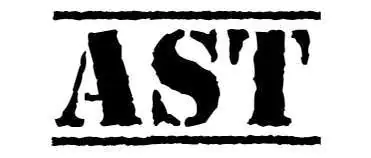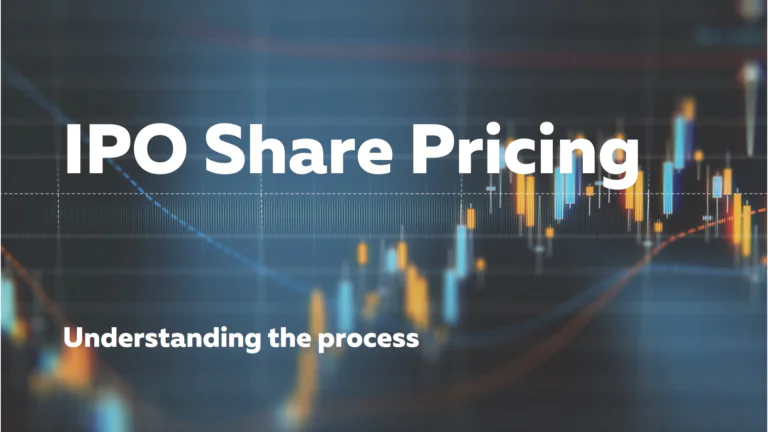Investors mostly get eager with the stock market, especially during IPOs. An IPO is the initial public offering of stock that is available to the general public as opposed to shareholders & investors. In recent years, many IPOs have achieved spectacular results, and this is what makes them attractive. However, IPOs are not without their risks and these are some of the many different scams that an investor might easily be caught in.
In this article, we will review the most popular IPO frauds, thereby allowing you to prevent potential pitfalls in order to make the right decisions.
Table of Contents
The Allure of IPOs: Why do other investors get attracted to them?
But with all these scams let us first ask ourselves why IPOs are so popular in the first place.
- Potential for High Returns: IPO is; when investors think that they will be able to acquire those shares at a lower price hence increasing their price over the period.
- Publicity and Media Hype: Many firms that lose their virginity in the market are the recipients of a great deal of publicity, which at times makes the marketplace act like a bandwagon: people buy because others are doing so and they want a piece of the pie without taking the time to better educate themselves on the stock.
- FOMO (Fear of Missing Out): Whenever there is an IPO some investors rush into it simply because they don’t want to lose out on what they feel might make them more money than they already are, as a result, they don’t look at the risks associated with investing in IPOs.
Suffice it to say, that IPOs are potentially promising; however, fraud is also part of this picture. It is common to find that fraudsters are capitalizing on the fact that investors are so excited and eager in investments to such an extent that they lose their ability to evaluate an investment proposal logically. Now that we have an understanding of how IPO fraud works let us consider some of the most typical IPO cons.
Pump and Dump Schemes
The most popular type of IPO scam is the pump-and-dump scheme. In this scam, the fraudsters manipulate the price of a company’s stocks by distributing bad or false information on purpose. This creates a buying hysteria, which inevitably pushes up the share value. After the price has risen the scam artists sell off all their shares at a handsome profit leaving the investors with nothing but a bag of inflated or valueless shares.
Such schemes can be directed to less popular and minor IPOs when manipulation of the market is easier to occur. There are too many scams out there that claim a stock will go up or down and people need to be aware of this and stay on the right side of the line. However, it is always wise to familiarize yourself with any company before investing in the firm.
Pre-IPO Scams
Other forms of cons include the Pre-IPO scams where the fraudsters will bring forth a company’s shares before the IPOs. IPO fraudsters inform investors they have privileged information on certain stocks to invest in as they have inside information that the stocks will surge after the IPO is launched.
In fact, such shares often never exist or the con artists involved do not have the permission to dispose of them. After the investors have sent in their money, the scam artist is gone and there are no shares to show for it.
So as a rule, the initial GreatOldShare shares that had not been IPOed had to be acquired through legally recognized investment banks or brokers. If such a person comes to you with an offer, it is recommended to undertake an identity check as well as the viability of such an offer.
Fake IPO Websites
The next widely spread type is the website scam that offers fake IPOs that look like the real ones. These are commonly well-designed fake websites with logotypes, articles, and even financial statements.
Many investors, as a result of the discount lure, put in their details and purchase shares expecting to be in the actual IPO. They are transferring their personal information to con artists who either fraudulently withdraw cash from their accounts or auction the data with other users on the black market.
To prevent this, ensure that any investment transactions are conducted through well-established financial institutions or an online platform. One should always compare the domain name of the site and make sure that you are using an authenticated site before inputting any of your details.
Cold-Calling Scams
In the second method, the scammers make fake cold calls to potential victims, posing as company representatives of trusted investment companies or offering limited IPO places. Fraudsters will sound very professional as they propose what might appear as the business opportunity of a lifetime. It becomes evident that they always push for quick decisions and they will do this by setting snares for their target.
In such cases, investors should always feel free and relaxed in making hasty decision-making process. Like all IPOs, legitimate IPOs can easily be accessed through proper stock exchanges or perfectly reliable brokers and if you do not have the time to research you should not invest anyway. The essence of such calls is to quickly get as much information from the caller as possible and pack as many convincing arguments as possible into the scarce time available, so if the caller did not give you time to think, then it is probably a scam.
Guaranteed Profits Scam
There is no free lunch in stock market investment; actually, there are no sure-shot earnings targets when it comes to IPOs. Some con artists may try to convince you that the IPO investment will offer a guaranteed high return rate, claiming it is an absolute certainty. They state they know about the company’s performance or the tendency of this stock’s price for example these companies’ stock prices are constantly unstable.
Even if someone tells you that they can forecast the market for you, any kind of guarantee of return is an indication of a scam. One should challenge such statements and seek for proper reliable information about the firm.
Insider Trading Scams
Insider trading is defined as the crime of investing in the stock market based on confidential information regarding a particular firm. Some impersonating well-wishers regarding certain information about an IPO set to open for the public will bring about massive profits. They employ this ‘‘insider’ story to deceive you into purchasing the shares before the company, which they claim to be associated with, reveals information that is supposed to push up the price of the stock.
However, besides being actually illegal, it’s also important to understand that these scammers are seldom outfitted with exclusive information. Instead of this, they employ some lies that cover the chance of the offer to make it seem real. When such investors are trapped they stand the risk of being prosecuted for unlawful trading under the insider trading law. Thus, it is advisable to avoid persons who promise to share useful information and rely only on open sources.
High-Fee Scam IPOs
But some IPOs are technically not illegal but involve hidden or very steep charges that make your profits plummet. These frauds are associated with high tariffs or commissions from brokers or other institutions, or, rather, fraudulently disguised ones. They may lure you into making investment decisions without telling you the other side of the story as regards the cost implications.
As such, it is recommended that anybody involved with such an investment regularly check the fee structures and read the small print. Investment platforms, and trustworthy intermediaries will disclose their charges. This is specifically so because some cons will post exaggerated returns or fees that are not often seen in the market.
Shady Shell Company IPOs
In this type of security fraud, the offenders organize disparate and almost ‘paper’ companies, in other words, companies with few if any, real operations or tangible assets, and offer shares in them through IPO. It is a purely financial enterprise whose only goal is to obtain funds through the issuance of shares, although it offers almost no benefits to its owners.
These companies mostly have concrete business strategies or they make highly probable forecasts of their future operations. After the IPO is closed it is often that the company goes bankrupt before the investors realize their investment is now in junk. The only way to stay away from this kind of flair is to properly research any company that is planning on going public. As much as it is possible to determine the new venture’s formality, one has to investigate its solvency, the people behind it, strategies, and plans.
Unregulated or Overseas IPOs
Another common trick is the unregulated or overseas IPOs. Some IPOs are floated in other countries that have either weak or no laws and do not protect shareholders from unfair share manipulation by fraudsters. Businesses running these IPOs may claim to deliver high returns and may sound good especially when they are in a growing sector. But buying a stake in such IPOs comes with a lot more risks without much legal redress in case of foul play.
In order to overcome these risks, always focus on IPOs that are listed with well-developed stock exchanges such as the New York Stock Exchange (NYSE), NASDAQ, or other world-reputed stock exchanges that have adequate regulation. Investors should remain watchful about any approaches extending from unknown world markets since they are often not legally required to protect shareholders.
It looks into the aspect of the most prevalent scams which include phishing scams and identity theft
In phishing scams, the scammer pretends to be a known financial institution through an e-mail or a message with an invitation to make an investment in some high-profile IPO. These communication processes usually appear legitimate, complete with organizational logos and formal language to defraud you into sharing your personal information such as account information or social security numbers.
It can then be used for identity theft in which the con artists open accounts in your name or take credit on them. As a measure against phishing, do not open links pointing to a website, and do not submit personal data in the mail. In every case, always cross-check with the source by writing to the company, or the bank via an official channel.
Protecting Yourself From IPO Scams
To avoid IPO scams and make safer investment decisions, here are some key steps to follow:
- Do Your Research: This means that anybody who wants to invest in any IPO should first consider getting information about the company. See the financial statements of the company, its managers, and the business plan. This information can be easily found in the company’s prospectus or other financial newspapers and magazines.
- Stick to Regulated Platforms: Holders are advised always to address their IPO needs through the recognized stock exchange or licensed stock dealers. This makes sure that IPO comes under the radar of the regulating authorities, a factor that greatly minimizes the possibility of fraud.
- Avoid Pressure Tactics: Con artists stand to benefit from scare tactics, and assure you that if you do not take action immediately, there is a ‘big deal’ waiting for you. Real business investments are not things that need snap decisions for their implementation. If you get the feeling that you do have not enough time, pause and dig deeper.
- Verify the Source: If anyone approaches you with an IPO offer remember always to cross-check with official governments or authorities. If someone contacts you out of the blue offering you the opportunity to invest in an IPO, beware of a scam.
- Be Skeptical of Guaranteed Returns: Nothing in the capital market, including the stock market is guaranteed to generate a return. Beware of anyone who claims they can give you a certain profit from an IPO.
- Check the Fee Structure: Take note of the ABS and trading commission when investing in an IPO. Do consider the term carefully and do not use the services of brokers or trading platforms that do not disclose their fees.
- Use Secure Platforms: When making investments, be very careful when selecting an online platform to use. Make sure there’s ‘https’ on the left side of the address bar and ensure the website belongs to the targeted firm company, or financial organization.
Conclusion
Shows that going into IPOs may be a way of making a lot of gains, especially for the initial investors but it is very important to be prepared for the scams and fraud that may happen to investors. More about pump and dump scams, phishing scams, and getting into, often, unequivocal shell companies, fraudsters try every trick to make hay while the sun shines with regards to IPOs. To avoid such misfortunes it is recommended that one take his/ her time, research, and invest through the right channels, and be wary of any investment that sounds like it could be a scam.
These sources of IPO information will fairly equip you to fend off rapacious IPO scams that can pull you back adversely and cost you plenty of money. Again reference should be made to the fact that informed decisions remain the best protection against becoming easy prey to a scam artist.




